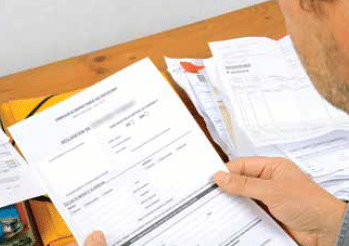
In short
The challenge
In France, it is estimated that 5 to 6 million people are excluded from the banking system[1]. According to the INSEE[2], 45% of housholds having filed for overindebtness in the last 12 months do not resort to banking services on a regular basis.
However, payment methods are accessible to all : 70% of households living below the poverty line have access to a payment card (vs. 85% of all households). Only 1% of French households doesn’t have access to a payment method, and a fraction among this percent does not possess a bank account.
We helped La Banque Postale develop a programme aiming at supporting its most fragile clients, in particular those who have financial difficulties and who do not resort to the banking services which are proposed to them.
[1] Banque de France, 2015. [2] “Debt and recourse to bank services in 2008”, INSEE
What we offer
In 2013, we helped set up « L’Appui », a banking and budgetary advisory telephone platform.
The two missions of the platform are the following :
- Providing support to clients of La Banque Postale who are facing occasional or recurrent financial difficulties
- Improving the prevention of financial difficulties.
Our partner

Read more
Nowadays 99% of French population has a bank account[1]. However, 5 to 6 million people are in a situation of financial exclusioe[2].
- 2,5 million people are registered on the national file of credit repayment incidents. The number of people filing for overindebtness has been growing at a constant rate for 20 years, reaching 200,000 people today.
- According to the INSEE, 45% of housholds having filed for overindebtness in the last 12 months do not resort to banking services on a regular basis. In 2010, 780,000 households were going through debt relief.
However, payment methods are accessible to all : 70% of households living below the poverty line have access to a payment card (vs. 85% of all households). Only 1% of French households doesn’t have access to a payment method, and a fraction among this percent does not possess a bank account.
Difficulties in accessing banking services have multiple consequences :
- Decrease in the disposable income the households are left to live with once they have paid their bills. The poorest households usually pay more banking fees. We have already referred to this phenomenon which is called the double penalty of poverty.
- No funding for specific needs or fundamental projects, because no access to credit or prohibitive interest rates.
- Bad credits : difficulties in accessing regular credits lead to resorting to revolving credits, which are more expensive.
- Social consequences : financial difficulties create tensions among families and friends.
[1] Banque de France, 2015. [2] “Debt and recourse to bank services in 2008”, INSEE
We helped La Banque Postale develop a programme called « L’Appui » aiming at supporting its most fragile clients, in particular those who have financial difficulties and who do not resort to the banking services proposed to them.
L’Appui is a banking and budgetary advisory telephone platform. It was launched in 2013.
The two missions of the platform are the following :
- Provide support to clients of La Banque Postale who are facing occasional or recurrent financial difficulties
- Improve the prevention of financial difficulties.
Contact is made by the client who dials a toll-free number (available from Monday to Friday, from 8am to 6pm).
The client is provided with 3 levels of analysis:
- Analysis of what the household is left to live with once all the unavoidable expenditures have been taken into account (ie. rent, rent charges, transport, repayment of loans, etc);
- Detection of situations of non-take up of social rights such as employment benefits, housing benefits, insurance benefits ; and detection of bad credits or situations of overindebtedness. The counsellor will redirect its client towards competent partners to facilitate the access to social rights and social tariffs;
- Redirection towards the offers developed by the Action Tank (Programme Malin, Mobiliz, Optique Solidaire).
The platform works with :
- A network of councellors, financial centres and IT tools, as well as a network of partner NGOs who detect and redirect fragile clients towards the platform;
- Its partners, including the Action Tank, who have developed offers dedicated to fragile clients
In 2015, 32 councellors were actively animating the platform, and 8,000 clients have received advice through « L’Appui ».
A partnership with CMP Banque and Crésus was initiated in order to deal with bad credit and overindebtedness situations.
The platform was selected as a socially innovative project by the French President in 2014, during the operation « La France s’engage ».

